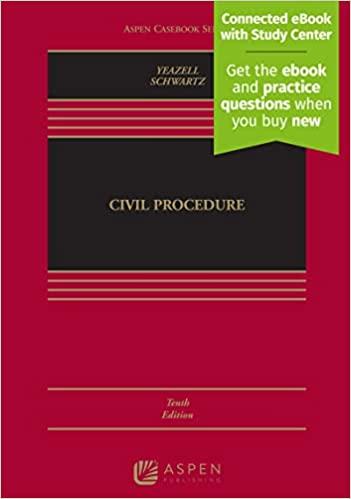Question
State A has a bilateral agreement with State B, which provides for the reciprocal freedom of movement between their nationals in their respective territories. In
State A has a bilateral agreement with State B, which provides for the reciprocal freedom of movement between their nationals in their respective territories.
In application of this agreement, many nationals of State B have moved to Staate A, which is a rich, well-resourced state. Additionally, State A has granted the authorities of State B, access to its territory for the use military of exercises.
After several years the relationship between the two (2) States deteriorates, leading State A to denounce the existing bilateral treaty and expel all nationals from State B living in State A.
In response, State B, initiates proceedings before the International Court of Justice (ICJ) claiming that State A has violated their bilateral treaty, customary law and the general principles of good faith and pacta sunt servanda. However, State A has made a reservation excluding the application of any bilateral treaty binding upon the parties in the dispute.
What issues of international law will the International Court of Justice (ICJ) need to consider in this scenario?
Step by Step Solution
There are 3 Steps involved in it
Step: 1

Get Instant Access to Expert-Tailored Solutions
See step-by-step solutions with expert insights and AI powered tools for academic success
Step: 2

Step: 3

Ace Your Homework with AI
Get the answers you need in no time with our AI-driven, step-by-step assistance
Get Started


